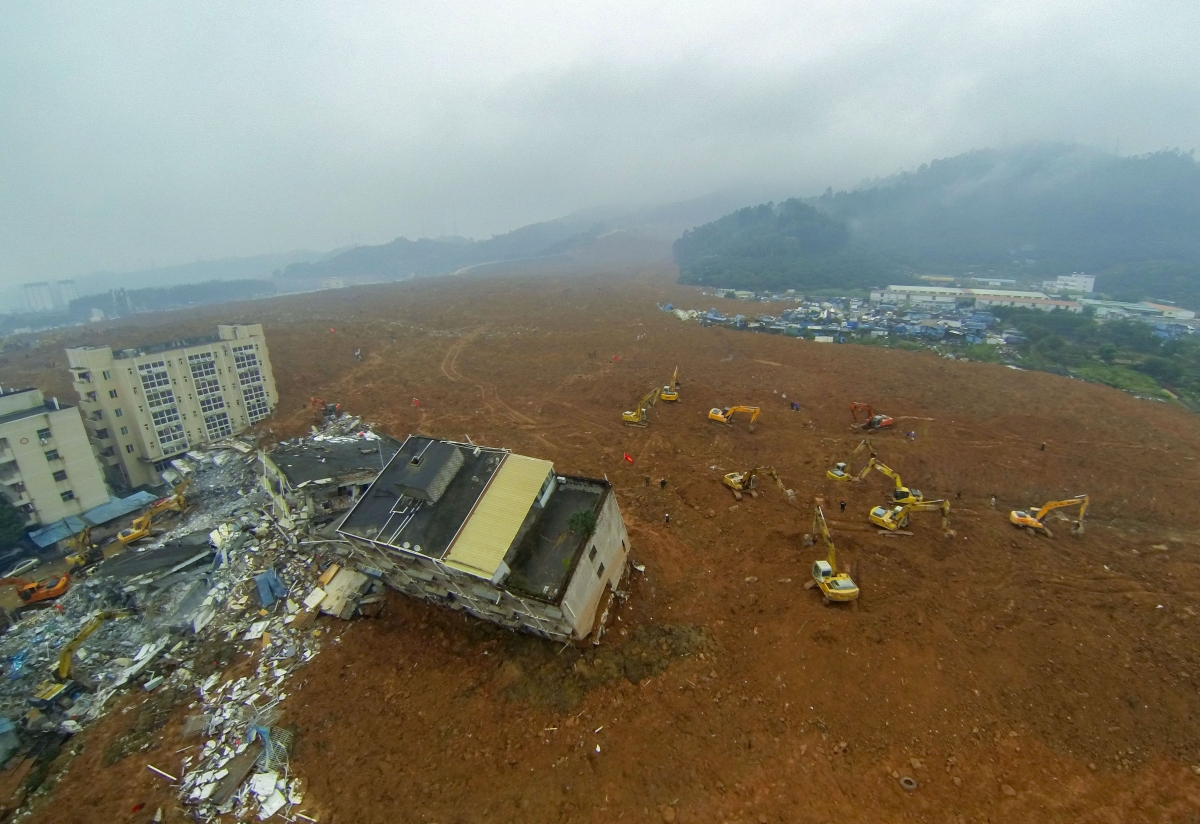China landslide: First body found as frustration mounts in Shenzhen



Authorities recovered the body of the first confirmed victim of a massive landslide that buried and damaged 33 buildings in China, as relatives of those missing criticised rescue efforts. At least 85 people were still unaccounted for two days after a man-made mountain of soil and waste swamped an industrial park in the southern city of Shenzhen.
Rescuers dug out the first lifeless body from the blanket of mud covering an area of 380,000 square metres in the early morning of 22 December, according to Xinhua. The state news agency focused its report on the huge search efforts involving almost 3,000 people including army personnel aided by 151 cranes and dozens of search dogs.
Nevertheless there was mounting anger, with relatives of the victims furious that digging was halted overnight for five hours, significantly narrowing chances of finding survivors. They also complained about lack of communication by the authorities who had sealed off vast parts of the affected area.
A woman told the South China Morning Post she had information on the whereabouts of a group of people buried by the landslide but was unable to deliver it to rescue teams. "Dozens of people were trying to run away from the mud, some were lucky enough to be pushed out by the impact of the landslide, but others were buried under the mud," Hu Wenhua, 48, who lost her husband in the disaster, told the Hong Kong newspaper. "I wanted to communicate the information about where these people were probably buried to the rescue teams, but I had no chance to speak to them".
Heavy rain on 20 December triggered the landslide made of soil dug up during constructions in the area and amassed on the side of a hill 100 metres high over the past two years. Residents had long complained about the overhanging mountain of dirt and some were now accusing the government of negligence.
"If the government had taken proper measures in the first place, we would not have had this problem," Chen Chengli told AP. "Heavy rains and a collapse of a mountain are natural disasters, but this wasn't a natural disaster, this was man-made," added a resident, Yi Jimin.
Beijing in turn blamed human error. "The pile was too big, the pile was too steep, leading to instability and collapse," said the Ministry of Land and Resources. The incident was the latest man-made tragedy in China, underscoring how the country's race for development and companies' lust for profits is often accompanied by negligence toward safety.
The landslide caused some buildings to collapse and damaged a total of 14 factories, two offices, one canteen, three dormitories and 13 low-rise buildings. It also caused an explosion at a natural gas pipeline.
After the night break, rescue workers were racing against time to find survivors. "The rescue is extremely difficult due to the mud and silt," Cui Bo, a Guangdong firefighter told Xhinua.
© Copyright IBTimes 2025. All rights reserved.






















